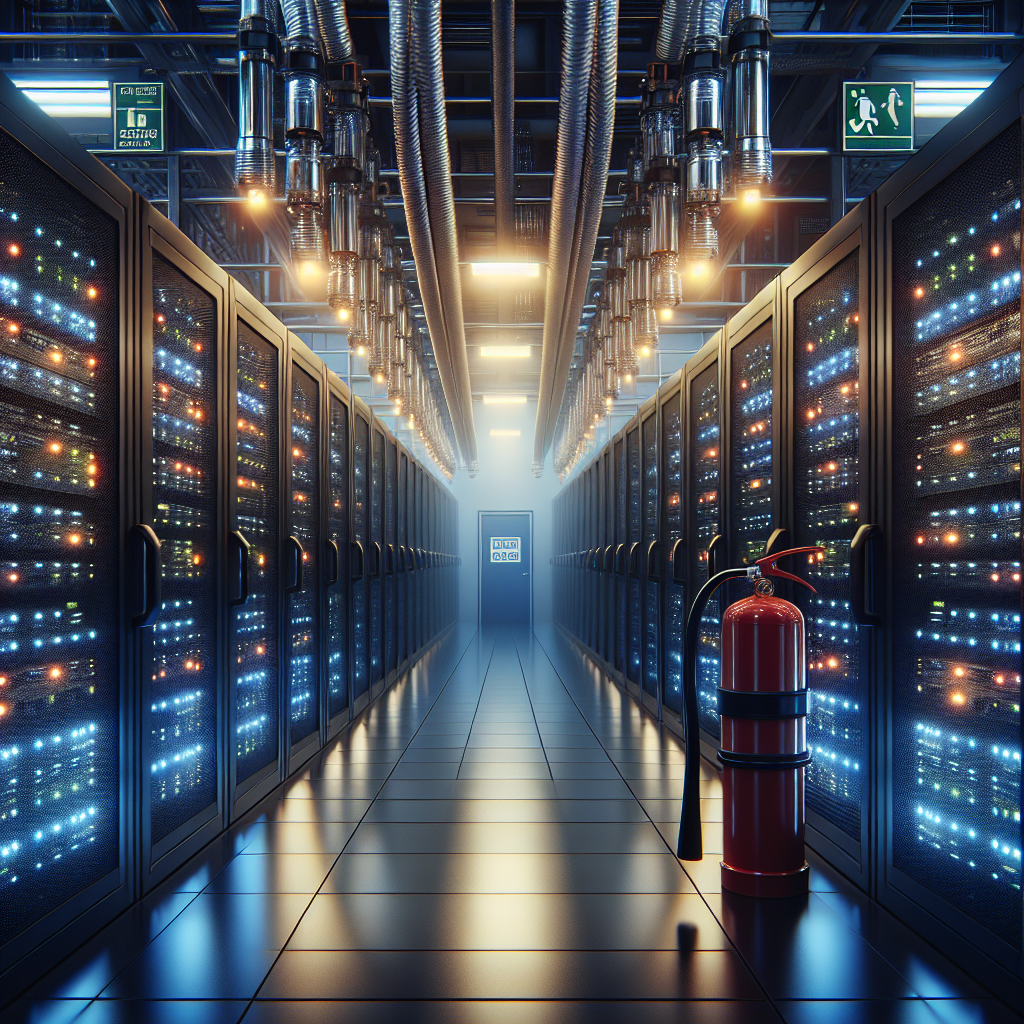Your cart is currently empty!
Best Practices for Fire Suppression in Data Centers

Data centers are crucial components of modern businesses, housing the servers and equipment necessary for storing and processing vast amounts of digital information. With so much valuable data at stake, it is essential for data center operators to have effective fire suppression systems in place to protect their facilities from the devastating effects of fires.
There are several best practices that data center operators should follow when it comes to fire suppression:
1. Regular Inspections and Maintenance: It is important to regularly inspect and maintain all fire suppression systems in the data center to ensure they are in proper working order. This includes checking for leaks, ensuring that all components are functioning correctly, and replacing any outdated or faulty equipment.
2. Early Detection Systems: Early detection of a fire is key to minimizing damage in a data center. Installing smoke detectors and heat sensors throughout the facility can help alert staff to the presence of a fire before it has a chance to spread.
3. Clean Agent Fire Suppression Systems: Clean agent fire suppression systems, such as FM-200 or Novec 1230, are ideal for data centers because they are effective at extinguishing fires without causing damage to sensitive electronic equipment. These systems work by releasing a gas that displaces oxygen, suffocating the fire.
4. Proper Ventilation: Proper ventilation is essential in a data center to prevent the buildup of heat and reduce the risk of a fire starting. Installing fans and HVAC systems can help regulate the temperature and airflow in the facility, reducing the likelihood of a fire.
5. Regular Staff Training: It is important for data center staff to be trained in fire safety procedures and know how to operate the fire suppression systems in case of an emergency. Regular training drills should be conducted to ensure that staff are prepared to respond quickly and effectively in the event of a fire.
6. Emergency Response Plan: Data center operators should have a detailed emergency response plan in place that outlines procedures for evacuating the facility, contacting emergency services, and coordinating with fire suppression system vendors. Having a well-thought-out plan can help minimize confusion and ensure a swift and organized response to a fire.
By following these best practices for fire suppression in data centers, operators can help protect their facilities and the valuable data housed within them. Investing in quality fire suppression systems and implementing proper safety measures can help prevent fires from causing catastrophic damage and ensure the continued operation of the data center.

Leave a Reply